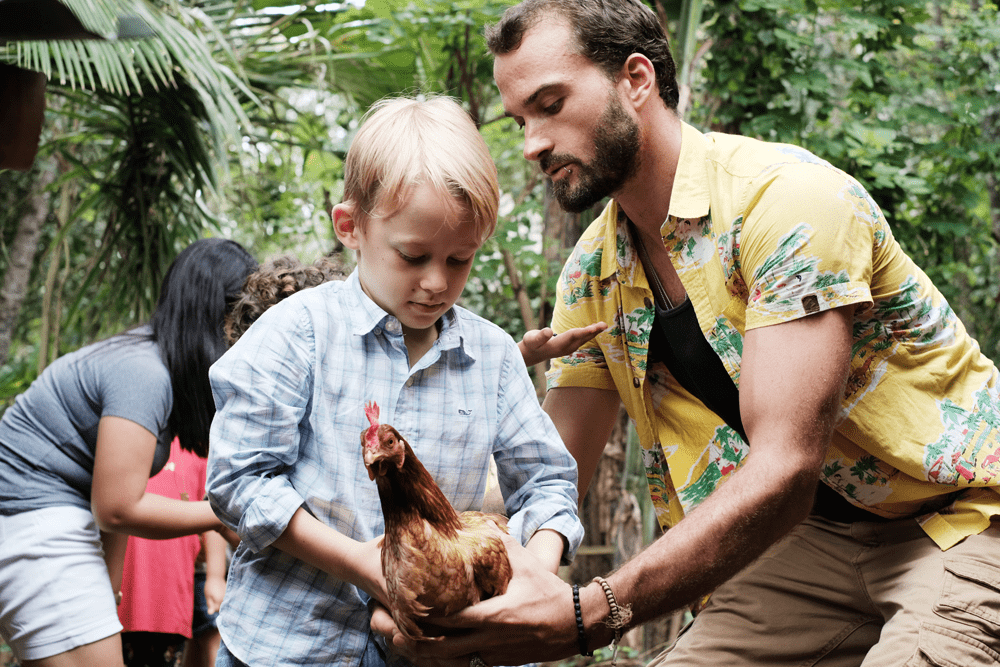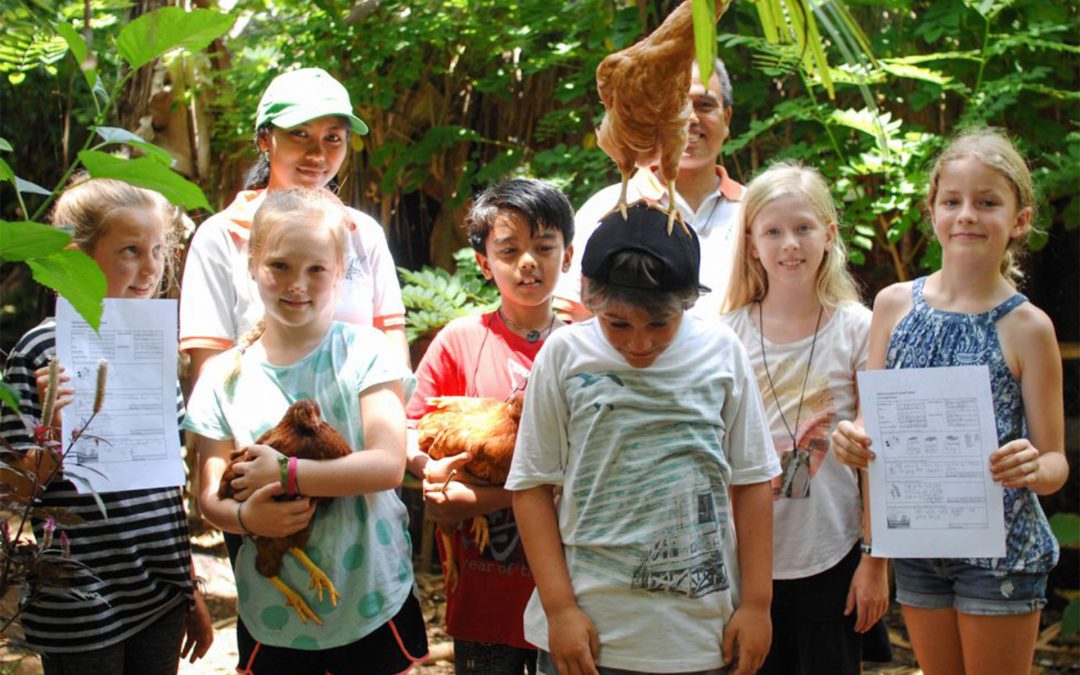Cooped up in the classroom, most elementary schoolers prepare for the next test, but Ibu Harriett’s fourth grade Green Studies class is outside in the chicken coop preparing for life. Through a schoolyard chicken program, Green School teaches real world, entrepreneurial concepts that even some adults struggle with, from resourcefulness and responsibility to accounting and financial planning.
As student Alex Rubin creaks open the gate to count the chickens, he shares how the egg enterprise came about. Using words that contrast with the jungle surroundings, let alone a nine-year-old’s vocabulary, Rubin explains, “We visited the student bank and filled out a loan form to borrow money, so we could pay for the chickens.” Before that, the students created a budget to consider their costs, including chicken feed, construction materials, and the chicks themselves. When the hens start laying, the students plan to pay the loan back egg-by-egg, by selling them to the Green School community at the fortnightly Farmers Market.

Through this rather grown-up rigmarole, the students learn that sustainable business practices make financial sense, not to mention environmental. Using resources they already had, like a fallen tree for wood and an old coop, the students saved on costs and reduced the use of new, raw materials. The Green School Primary Programme’s Green Studies Teacher, Ibu Harriet, says raising chickens expanded class discussions more than she imagined, as they explore business topics like, “What is a healthy economy?” and “What does a balanced enterprise look like?” The hens have brought these otherwise yawny subjects to life, and inspired an enthusiasm that has been integral to the students emotional development as well.
 Green Studies teacher guides her students on how to handle the hens
Green Studies teacher guides her students on how to handle the hens
Unlike text book ‘word problems’, this project poses unexpected “world problems,” allowing children to react in real-time and continually reassess their plan. With the death of one hen early on, students learned to be adaptable and that not everything goes according to plan. Pak Ron, a local snake expert, visited the class to educate and warn the students of the danger egg-eating snakes could pose to a chicken enterprise.

While Rubin may not have been raised on a farm, he carefully closes the gate behind him, showing a sense of responsibility that most of the students mirror. Ibu Harriet says the program teaches personal accountability, but also the importance of sharing responsibilities – a “Big lesson for primary kids is to think outward, not just inward.” Echoing that concept, the students plan to share their project with surrounding schools by offering tours, and allowing other people to gain knowledge and experiences from their work.
At the end of each class, the students take time to reflect, reassess, plan ahead, and thank each other. As they recount the class, coping with some disappointment, one group maturely mentions they weren’t able to build their nesting box because their wood broke. Maybe it can be attributed to the calming green surroundings, or the power of this programme, but it’s clear that these hens offer more than eggs. They are hatching a group of young entrepreneurs who have really taken ownership over their enterprise, and who are prepared to creatively problem solve and adapt to future challenges.
Learn more about Green School’s Primary programme here.

